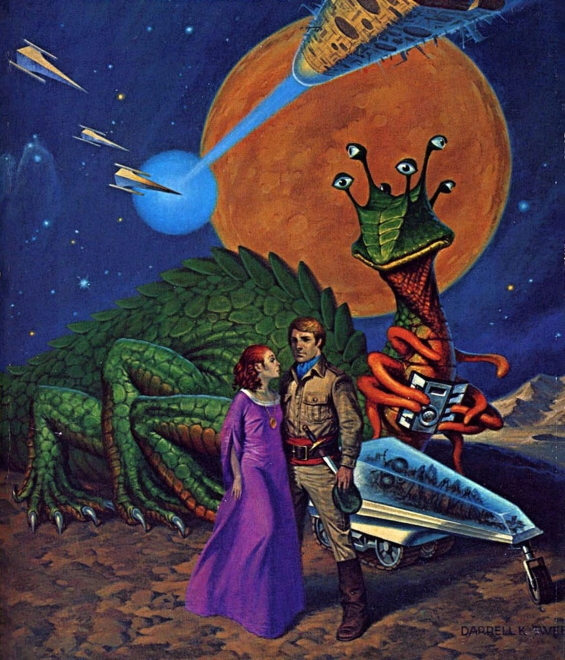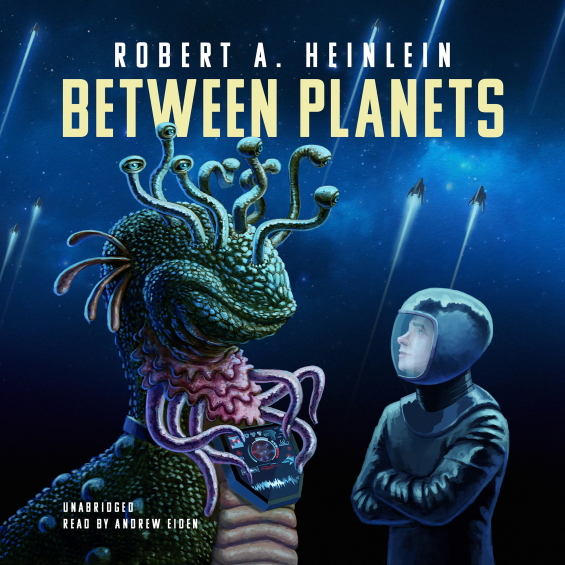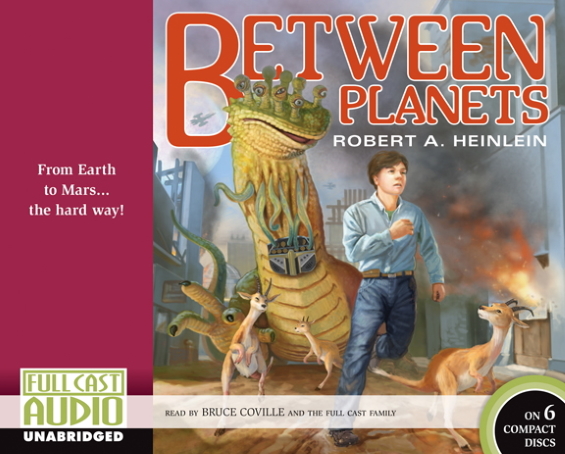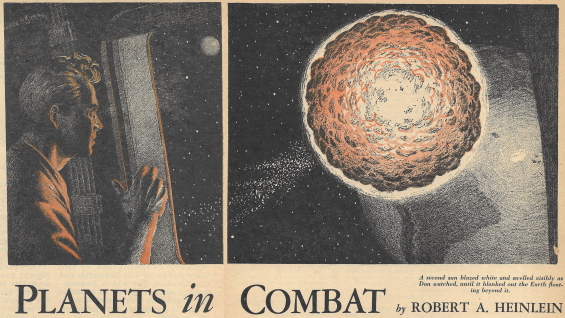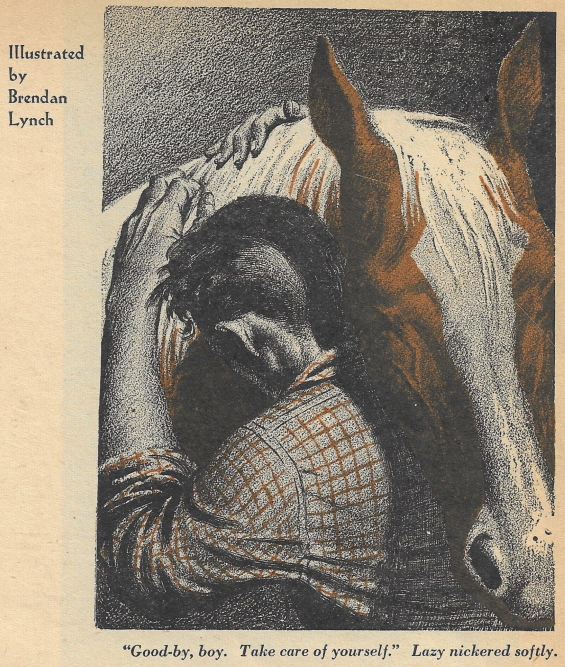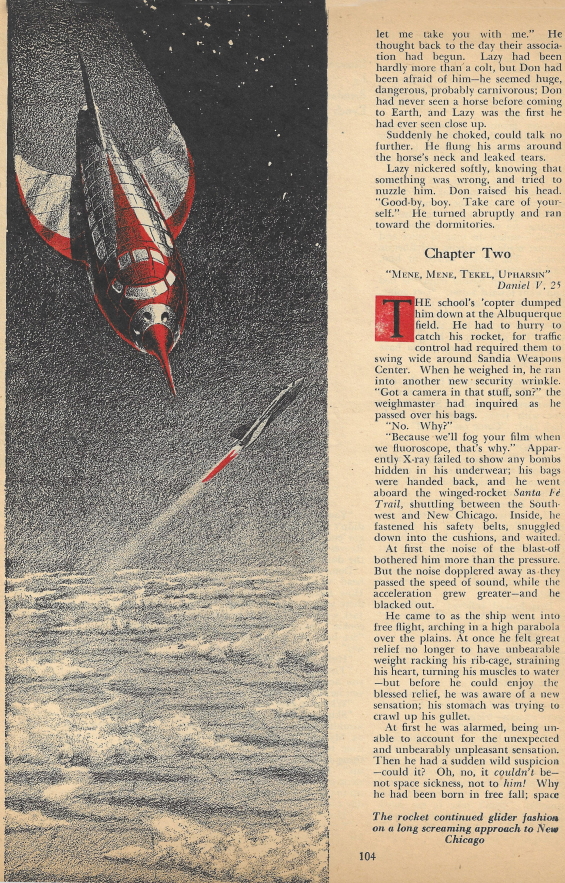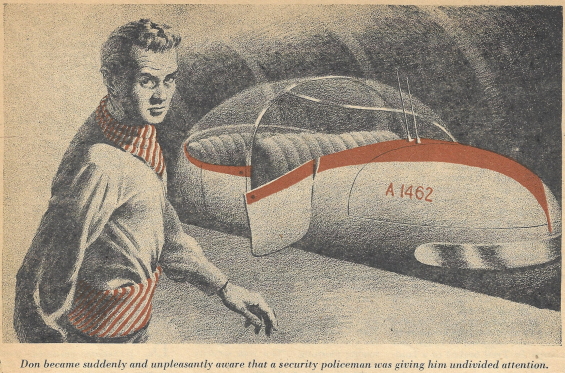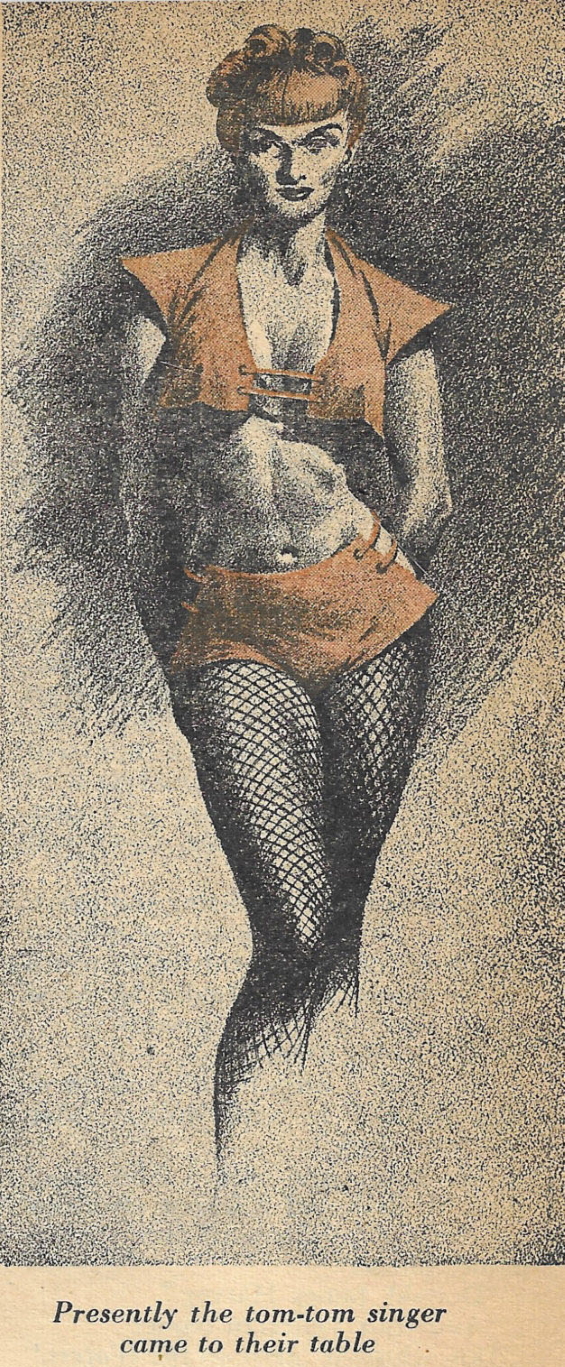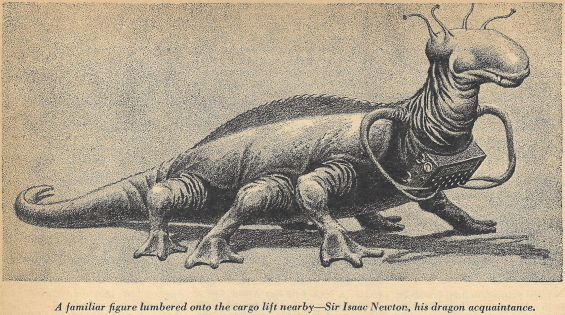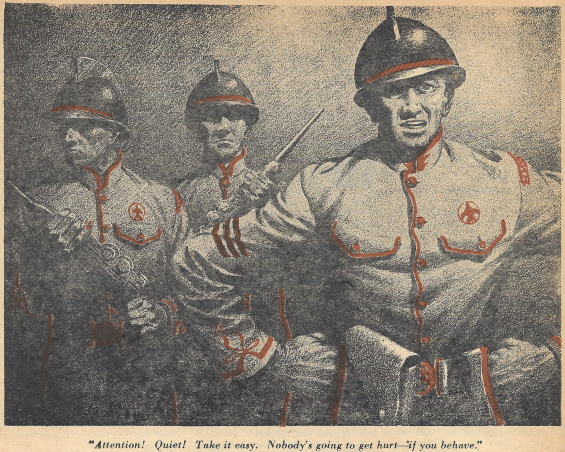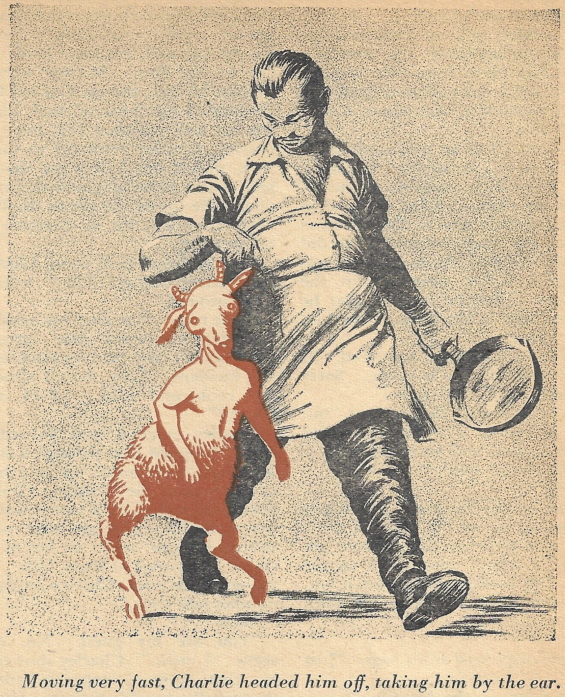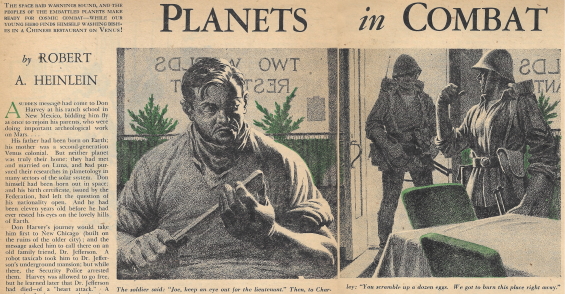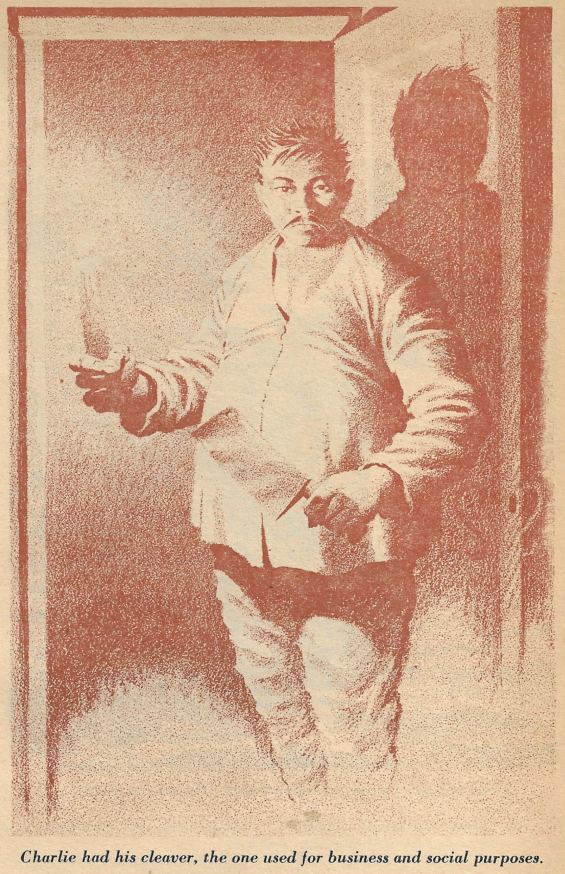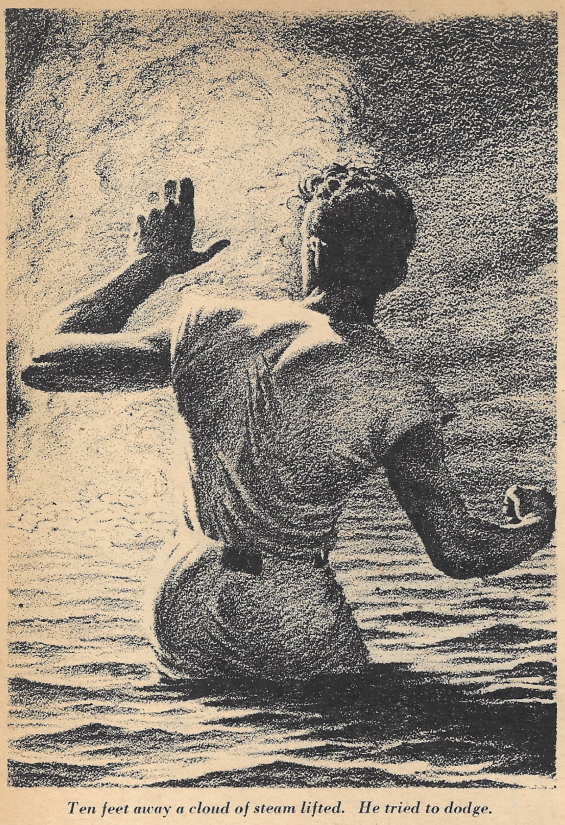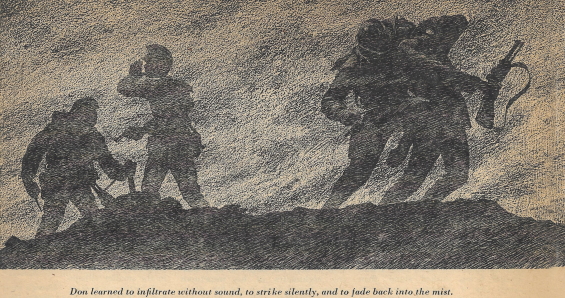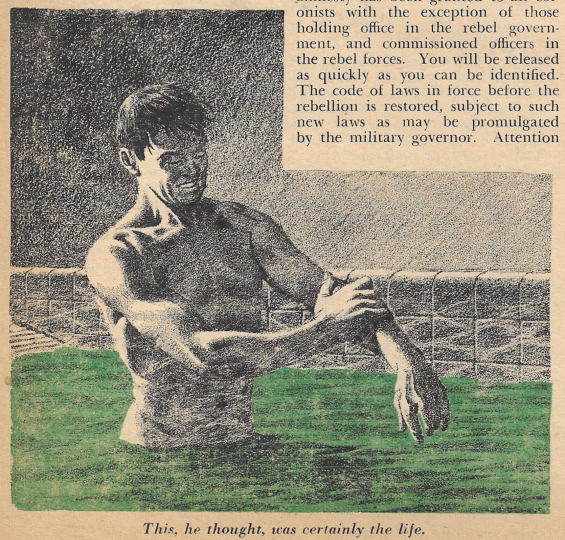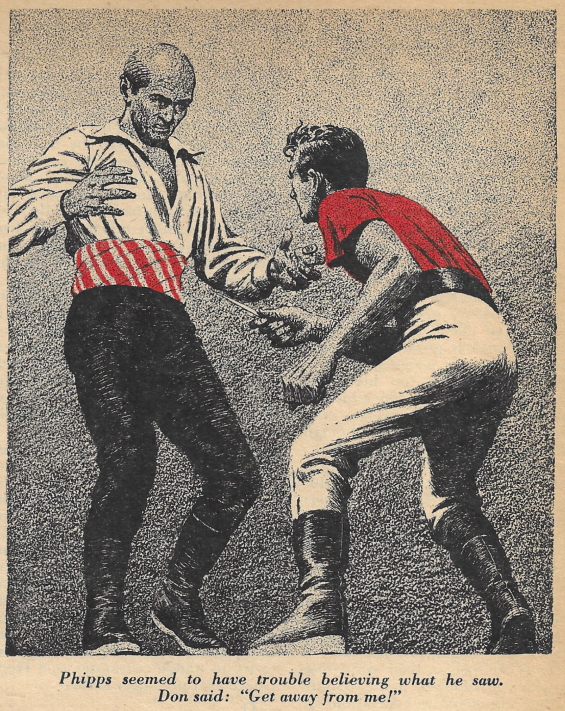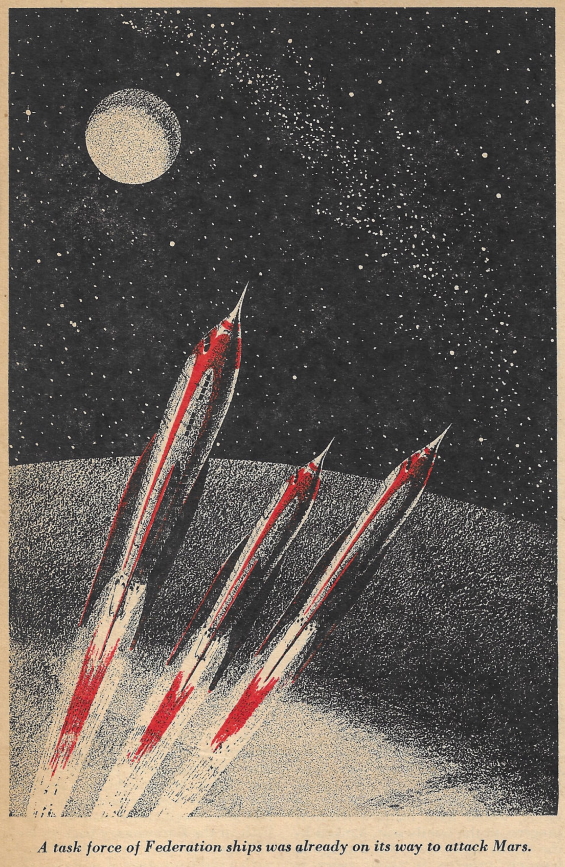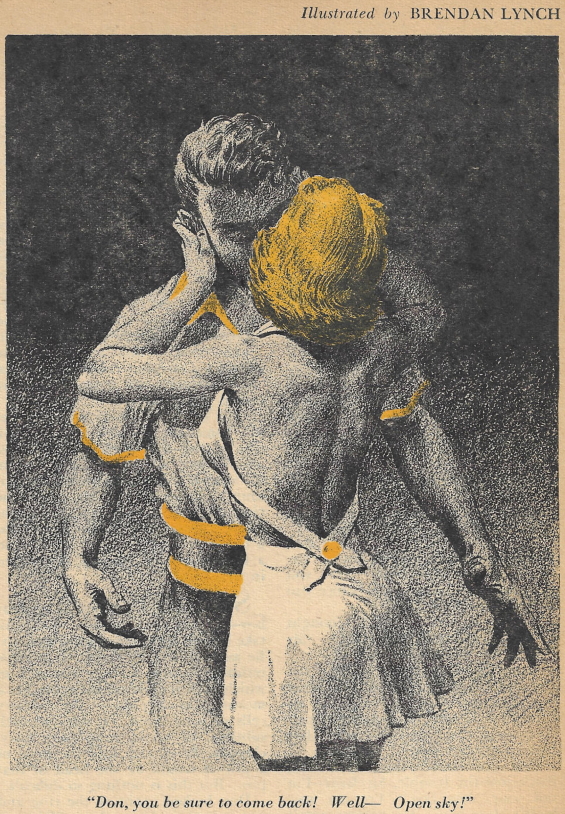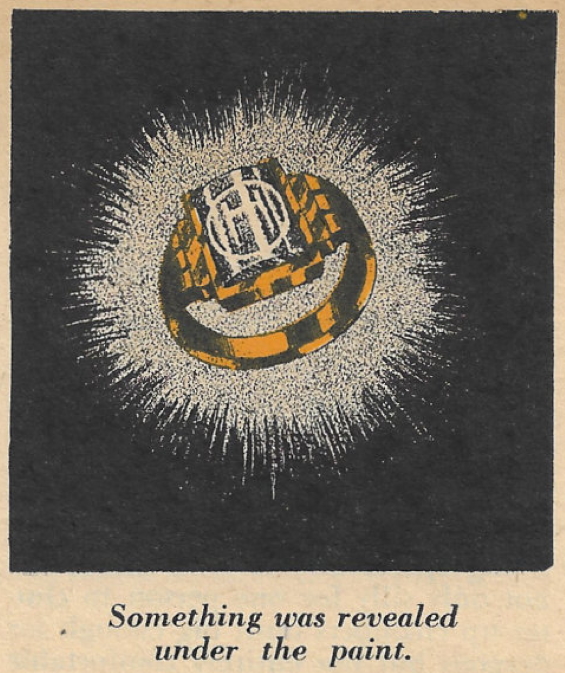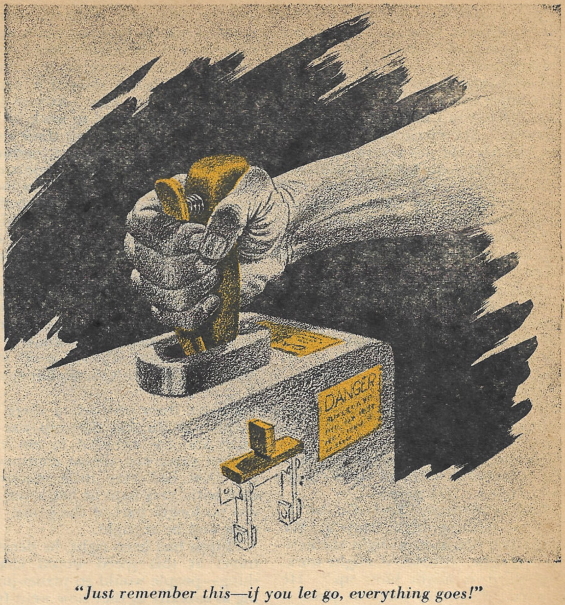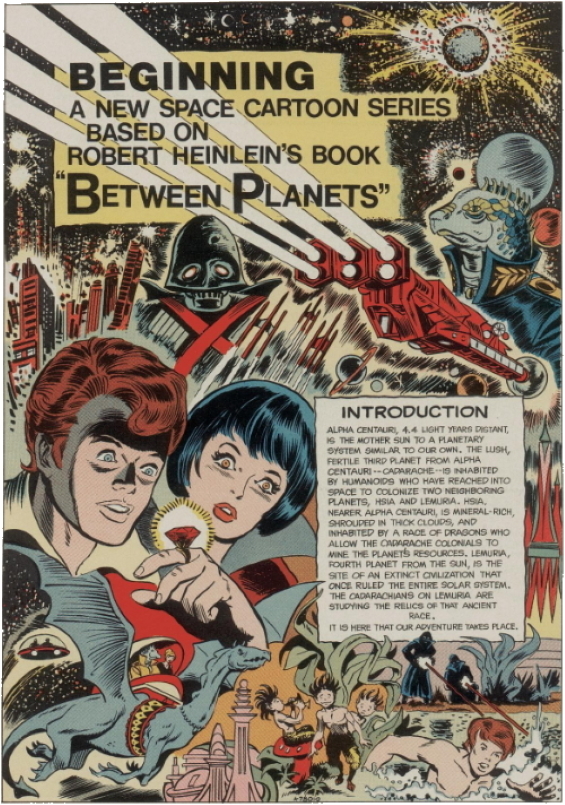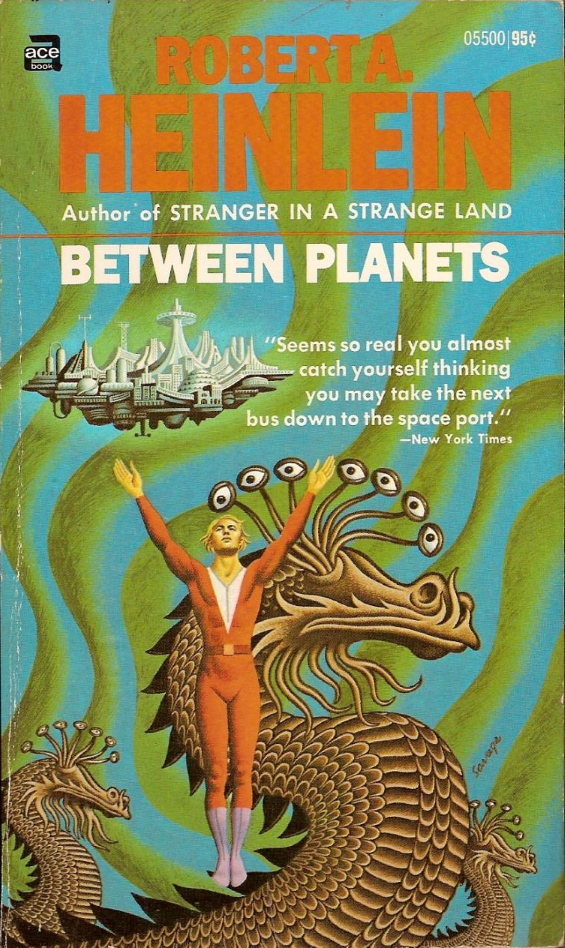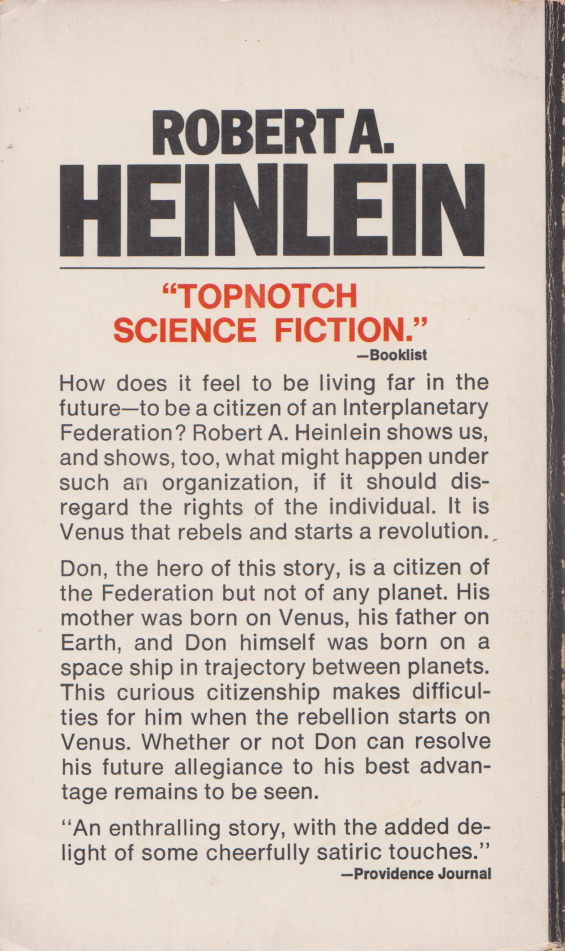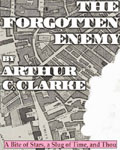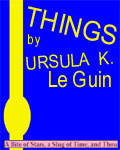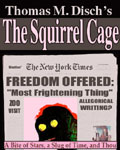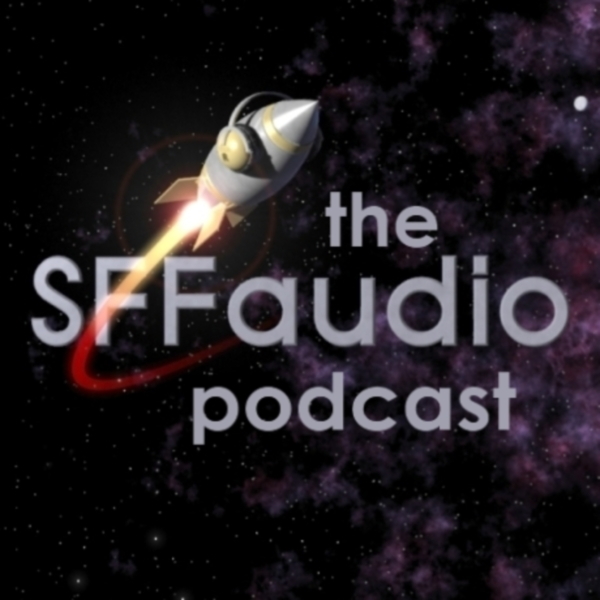
The SFFaudio Podcast #740 – Pursuit by Lester Del Rey – read by Dale Grothman for LibriVox. This is a complete and unabridged reading of the novel (1 hour 59 minutes) followed by a discussion of it. Participants include Jesse, Paul Weimer, and Tony DeSimone.
Talked about on today’s show:
Space Science Fiction, May 1952, he was the editor, his editorial, a new baby, growth and development, a personality of its own, the most appropriate name, themes, we like good science fiction, final frontier, space opera has long since been overdone, to meet every challenge to spread throughout the universe, always a bad sign, extension in all directions, indefinite indivisibility, occasional fantasy, still countless fine stories, our only taboo, a matter of taste, a better definition of maturity, suspenseful stimulating entertainment, suggestions and objections, a cooperative concern, a letters section, reviews of the best of the new books, special mention, occasional articles, future editorials, the art for Pursuit, that’s the Moon, our hero, an unusual situation, a product of this magazine, for no reason, the wonderful and thoughtful editorial, reprint mag, cover his bases, as a showcase, an okay job, a little editorial at the end of the story, Pursuit ends where the story is just beginning, unrelated to anything we know, dining room in the mountains, another planet, national boundaries, endless possibilities, if you can, not responsible for mental breakdowns, licensing this story idea, not super-unique, The Stars My Destination by Alfred Bester, Larry Niven, stepping discs and teleportation booths, fascinating stories that explore that idea, Dan Simmons’ Hyperion, much better than here, Living Space by Isaac Asimov, parallel earths, your own personal planet, alternate universes, pocket universes, transferring from office to home through an alternate dimension, different versions of Earth, he’s an ideas guy but not excellent at executing, fast paced, a lot of pursuing and chase, deliberately obfuscatory, pressure on the reader, all red herring, Philip K. Dick, his sense of reality, mentally ill, Total Recall, novelette length, man on the run, the least good Philip K. Dick stories, short and painful, acceptable, authors who could do this better, a fun game: anonymize a story, someone like Paul, its one of these five authors, a gameshow, reveal the author’s name, Shaun Duke, streaming on Twitch, guess the author, the sky above the port was too easy, an author who wrote a lot, not a realistic game, a Lester Del Rey-ism, the relationships, wild talents, George R.R. Martin’s Wildcards, Parable Of The Talents, a role playing game, The Many Colored Land by Julian May, the rules, a superhero RPG, Marvel super hero RPG, Villains and Vigilantes, rolling up characters, random powers, mutant powers, lack of powers, Captain America doesn’t have any super-powers, maximized human, plus shield, plus moral goodness, lift Mjollnir, turns into a super-hero story, a mindfuck movie, Vanilla Sky (2001), Abre Los Ojos (1997), easily adapted, make it weirder, less straightforward ending, Ideas, did he know where it was going?, it kind of makes it worse, a plot and a plan, why the Moon sequence is in there, a John W. Campbell idea, psi-powers, seeded well enough, the unconscious part, the poltergeists, fair-ish, his style is such, good done ready next, when he meets the girl, ok, what is she doing?, explained by horniness, a little uncomfortable to read, dated these days, definitely horny guys around, The Sky Is Falling, idea-based, Badge Of Infamy, ancient parlance, horndogs, kind of uncomfortable, lurched into the bedroom, a gurgling cry, cold sober, none of her act, you damned alien!, you filthy monster disguised as a girl!, you can’t pass one tests, the dust on his feet proved that, crying now, I’m human Will, oh I’m human!, then prove it!, more apologies than one, she had proven herself and virginally so, complete surrender, cursed himself for a fool, ran off to the FBI, they’d been smart picking a virgin for the job, simple, simplistic, I like this idea, he likes the right ideas, his writing is serviceable, The Boys, what would Superman really be like?, he’d be a monster, accidents happen, we all become Lex Luthor, the hate for superheroes, he exhausted the idea, a reality that is ridiculous and impossible, to simplify and cheapen plumbing, you can reorganize your cells after you bite your wrist, you can jaunt, a better revenge story, The Count Of Monte Cristo with teleportation, Dr. Manhattan from Watchmen, the armed forces and the intelligence agencies, a three week Honeymoon to Hawaii, Mauna Kea is erupting, Paul is sensitive to sulfur, poi poi vulcanism, for other reasons, a planet walk, scale model of the solar system, a long walk, when measuring, Sweden, the lack of limits kills the idea in the end, its unconscious, The Golden Man, an X-Men style mutant, a mental midget incapable of even speech, incredibly impotent, suicidal, all instinctual, upgrade, anywhere in time and space, the end of storytelling, where Ted Chiang does good work, Understand, Vernor Vinge’s Bookworm, Run!, Flowers For Algernon, Lester Del Rey does it first, Helen O’Loy, The Faithful, H.G. Wells, David Brin the whole sundiver series, For I Am A Jealous People [is PUBLIC DOMAIN], self impressions, a good sign, SF stories about religion, as one reviewer recently pointed out, pulp magazines, who is standing out to Tony?, Thomas M. Disch, new wave, physically deformed guy uses time travel to get laid, sex with dinosaurs, All You Zombies, has sex with a lady named Eve, The End, a stage play adaptation by John Jakes, The Cold Equations, two people in a room and a voice on the radio, Strange Horizons, story ideas and cliches they would not accept, the main characters that are Adam and or Eve, anime, in the public consciousness has to have its analog, Behold The Man by Michael Moorcock, a great idea, nobody needs to write it again, sad, unique, novelette length?, a novel version, in the film industry, Saw (2004), short films are what you do when you can’t get funding for a feature, get funding for a feature by making a short, the whole premise is the end of Mad Max (1979), a tiny little rip off of one little scene, mining these old things, The Veldt is the holodeck, the same problems, what science fiction really is, if we have a technology what would that mean?, flat screen technology, the social consequences, what is the social consequence of , a certain band of science fiction, the good stuff for you, that’s the stuff that you want, what is the best really?, they really are objectively better, fixing typos, a missing page, what do we really mean, carrying a saddle through the whole story, no horses, no hats, space western, we can sweep too much, there are things that are better, its hard to judge, our sole aim, the best science fiction magazine, best to some group of readers, Strange Stories is not as good as Weird Tales, which is better Astounding or Amazing, Adams Family or The Munsters, an aesthetic, goofier, they’re all goths, Frankenstein monster, werewolf, grandpa is a vampire, Marilyn is normal, not adopted?, a fun idea, The Graveyard Book, a kid adopted by a jungle, Tarzan, extracted what little juice, very little juice, the way that he told the story, tighter plotting, a Hitchcock movie, a lot of running around, the payoff is kinda straight forward, what’s going on?, our complaint about the last Michael Crichton, Grave Descend, Drug Of Choice, Easy Go, fun all the way through, a nice ending, satisfying, minimal ideas, too big?, not enough restrictions, boundaries and constraints or restrictions, Julian May’s The Many Colored Land, explode things, too much, time travel, what can’t he do?, a better thinker, we need you to fix this story, Ted Chiang, the coolest things, where he saw himself earlier, Robert A. Heinlein, the car, the old fashioned running boards, the least substantial Lester Del Rey so far, the most interesting ideas, Badge Of Infamy, when Jesse shownotes it in six months, Mars, ex-wife, The Last Ship, network channels, TNT, the Navy funds the whole thing, based on a novel, A Town Called Alice, On The Beach, global pandemic, 2014-2019, masks, the remainders of the federal government, its like Soylent Green, getting rid off the useless people, gain of function, fear of nuclear war, a 20th century fear, the second in command is the Jayne from Firefly, right wing nut lens, Adam Baldwin, Chuck, gun crazy, typecast in his beliefs and his life, gone the way of Kevin Sorbo, mouths cover up by mugs, dub in dialogue later, semi-passable stuff, something you don’t seem much in plays, silent film, change people’s lips, de-aged Indiana Jones, 80 year old action hero, weak sauce, Raiders Of The Lost Ark is a terrific movie, had Indiana Jones nothing, he didn’t need to be in the movie, we wouldn’t have had the truck chase, Temple Of Doom, played comedicly, that was ok, Jaws (1975), The Young Indiana Jones Chronicles, highly educational, especially obvious, getting scolded all the time, hang our with artists all day, very different, accompanying documentaries, the weird things happening in the early 20th century, our troubling amnesia, I’ve got amnesia amnesia, self inflicted amnesia, Momento (2000), the Mark Twain episode, Jesse would love this, different Christian denominations, Paul is a map guy please and thank you, a pilgrimage book, axis mundi, foundational, catholicon, special rooms for everybody, protestants be like, dish on the Disch, The Dark Is Rising by Susan Cooper, PUBG later, assault a crime lord, escort mission, rescue mission, based on Jack Vance’s Tschai novel, players muddying things.
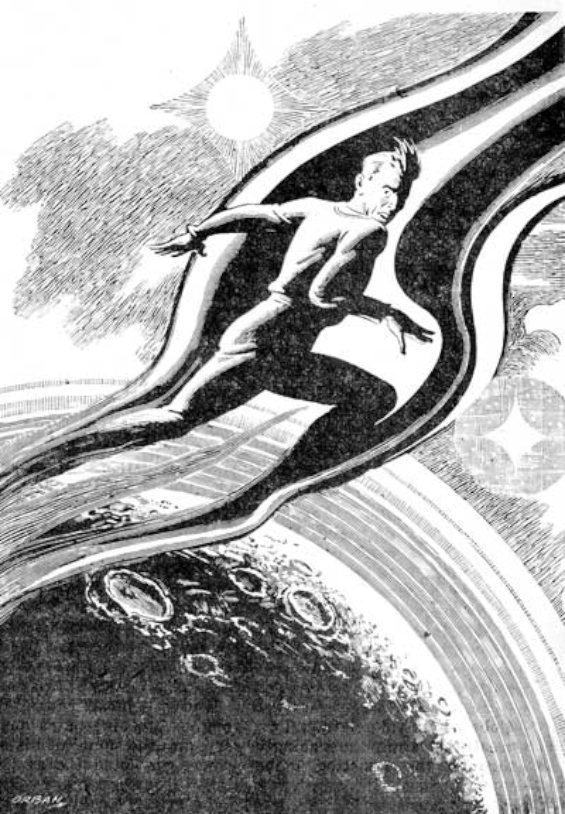
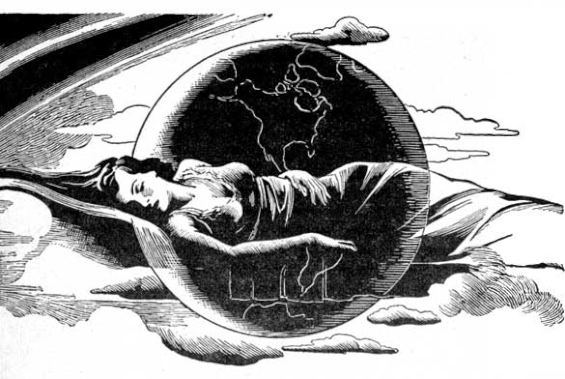

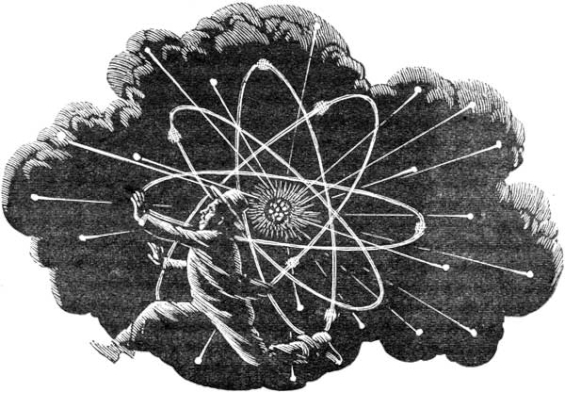
Posted by Jesse WillisBecome a Patron!


